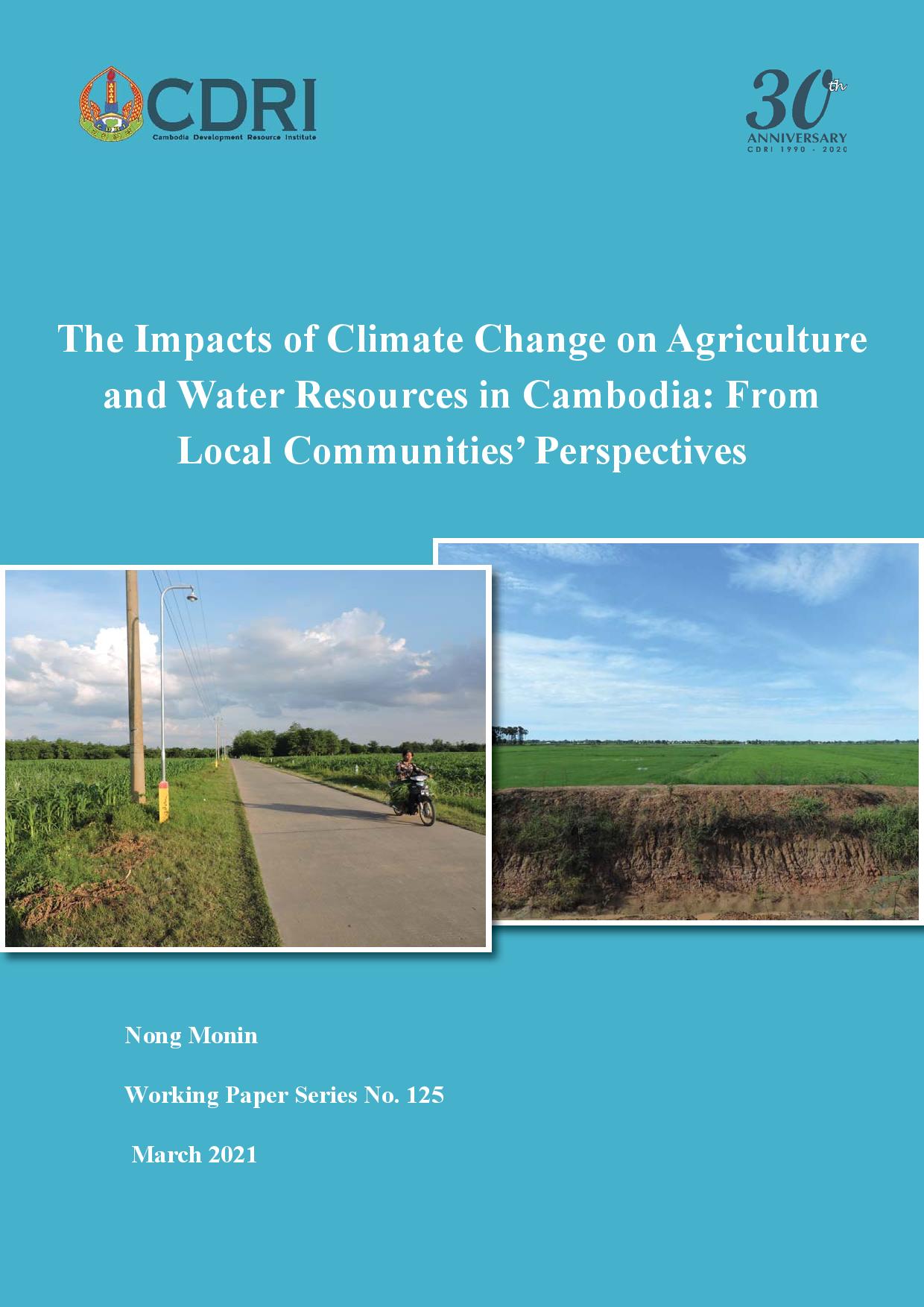
The Impacts of Climate Change on Agriculture and Water Resources in Cambodia: From Local Communities’ Perspectives
In 2019, 61 percent of the population living in rural areas, 76 percent of whom rely on agriculture as the main source of income and livelihood, sustainable rural and agricultural development is paramount to the Cambodian economy. National Strategic Development Plan 2019–2023 forms the basis of the national approach for strengthening the agri...
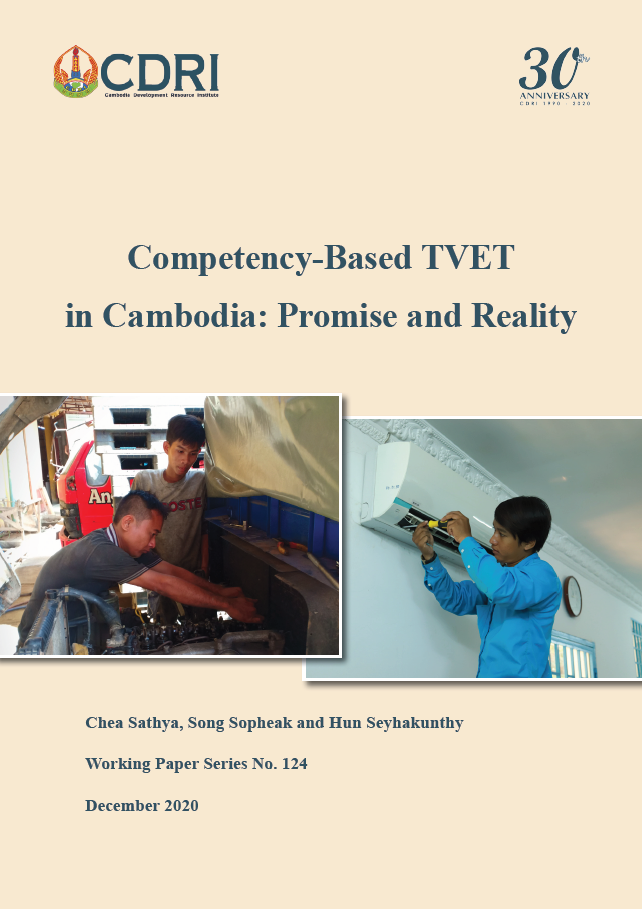
Competency-Based TVET in Cambodia: Promise and Reality
Modernisation brings new economic and social challenges around the globe. In this era of the knowledge economy, knowledge and skills have become valuable assets for national development. Many countries have been working out how best to enhance their knowledge and skills pool. Focus has recently turned to competency-based training (CBT), which is be...
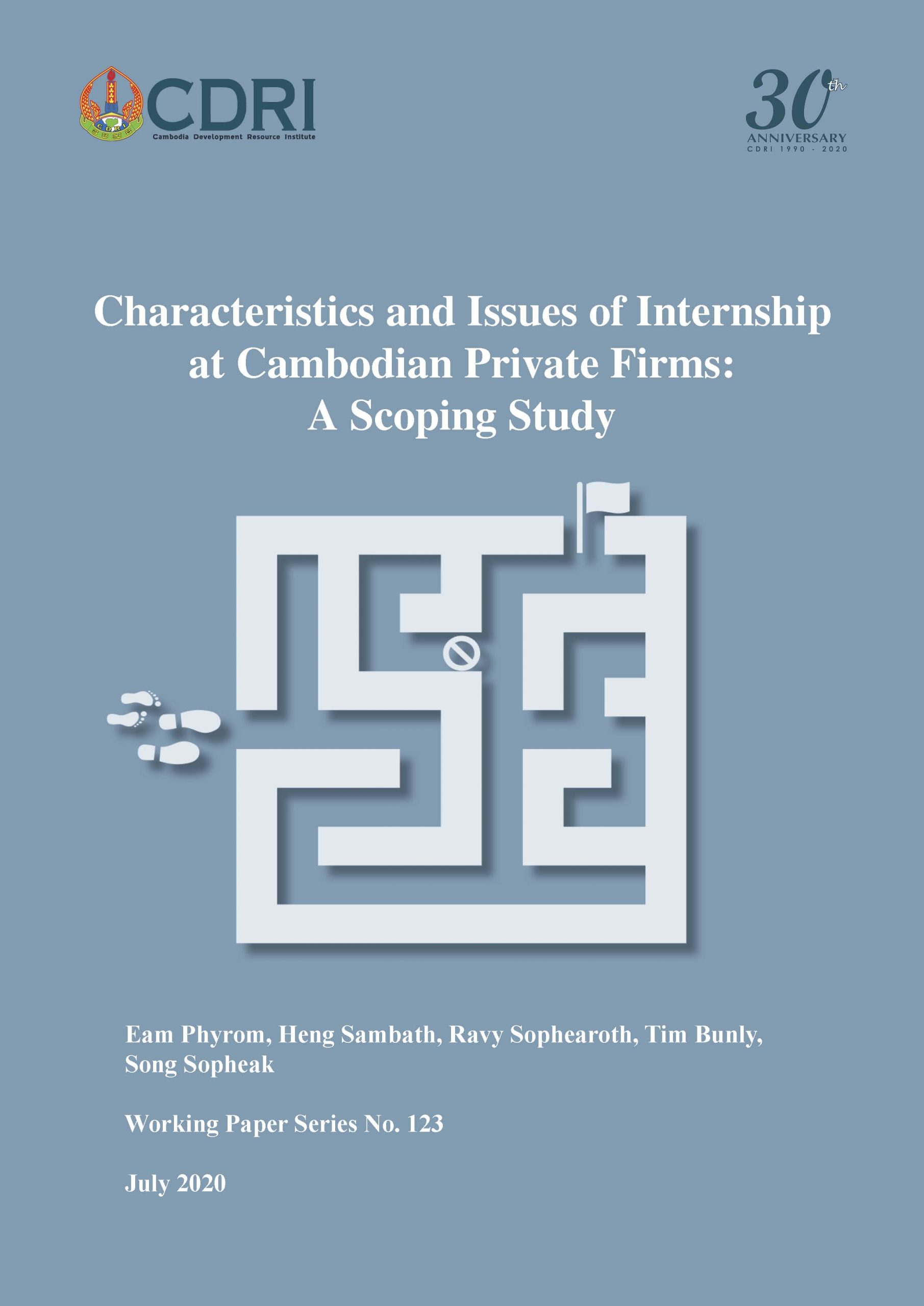
Characteristics and Issues on Internship at Cambodian Private Firms: A Scoping Study
To address the problems of skills mismatch, skills gaps and low-skilled labour that is hindering Cambodia’s economic development, the RGC issued the 2017 Internship Policy. Part of a larger endeavour to link providers of Technical and Vocational Education and Training (TVET) to private firms, the project aimed to give TVET students real, workbased...
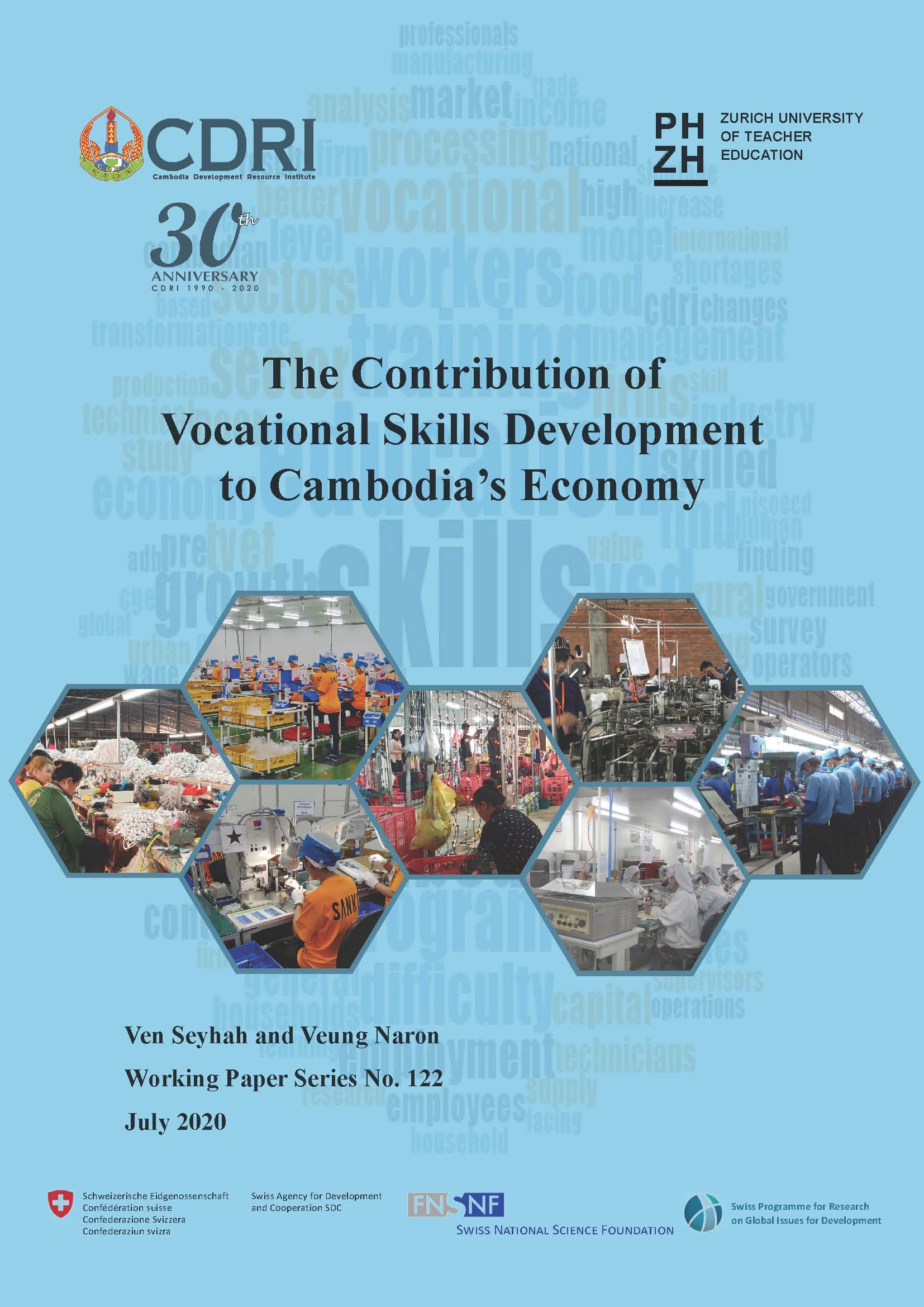
The Contribution of Vocational Skills Development to Cambodia’s Economy
In recognition of the importance of a well-trained workforce for socioeconomic development, the Rectangular Strategy Phase IV has put human resource development at the forefront of the Royal Government of Cambodia’s (RGC’s) development priorities (RGC 2018). The Industrial Development Policy (IDP) 2015-2025 was adopted as a guide to advance Cambodi...
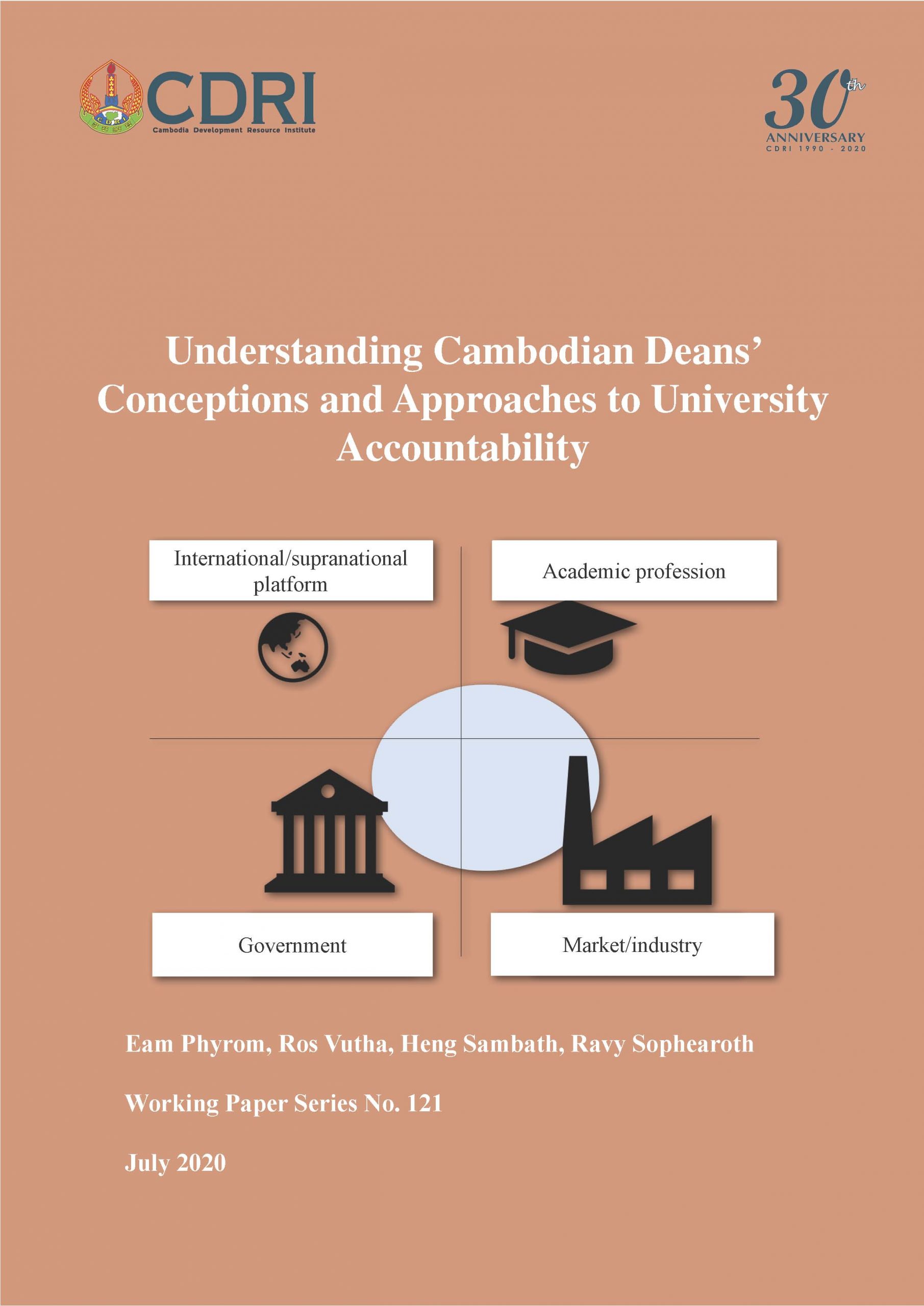
Understanding Cambodian Deans’ Conceptions and Approaches to University Accountability
University accountability in Cambodia, in both a theoretical and practical context, is ruled by complexity and there is no common understanding of what it means and how it should be assessed. This study examines how accountability in Cambodian universities is oriented towards different accounting constituencies – the government, the market, academ...

Cambodian Academics: Identities and Roles
This qualitative study aims to explore how faculty members at Cambodian universities conceive their academic identities, engage in different types of scholarly roles and perceive the organisation of the academic career system. It offers the following highlights: i). Cambodian academics develop their identities in relation to three forms: disciplina...
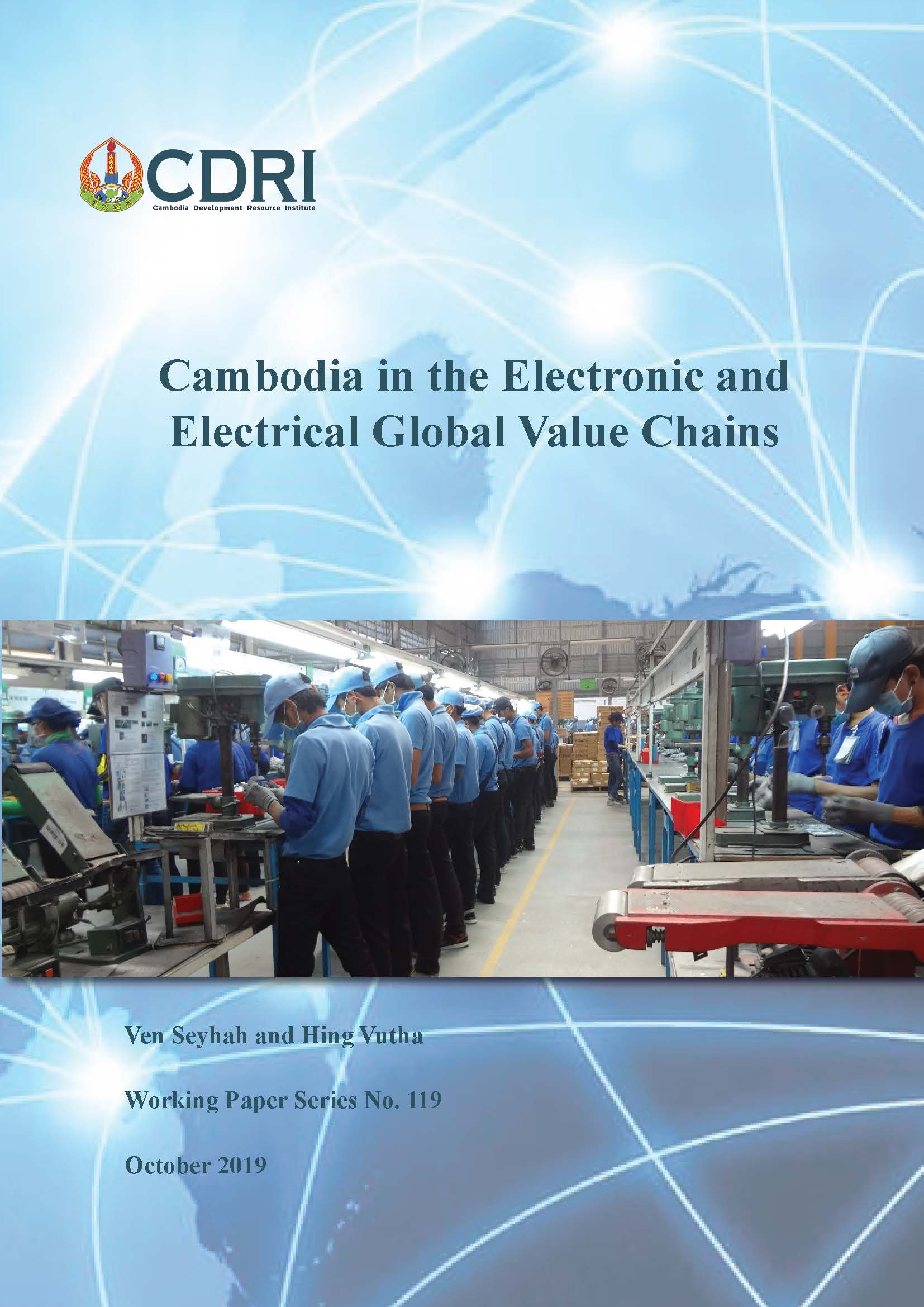
Cambodia in the Electronic and Electrical Global Value Chains
This paper maps Cambodia’s participation in Electronic and Electrical (E&E) value chains using trade statistics. It also conducts SWOT analysis based on both qualitative and quantitative data from a E&E firm survey, from which three major conclusions are drawn. This paper argues that E&E production in Cambodia has expanded rapidly with countries in...
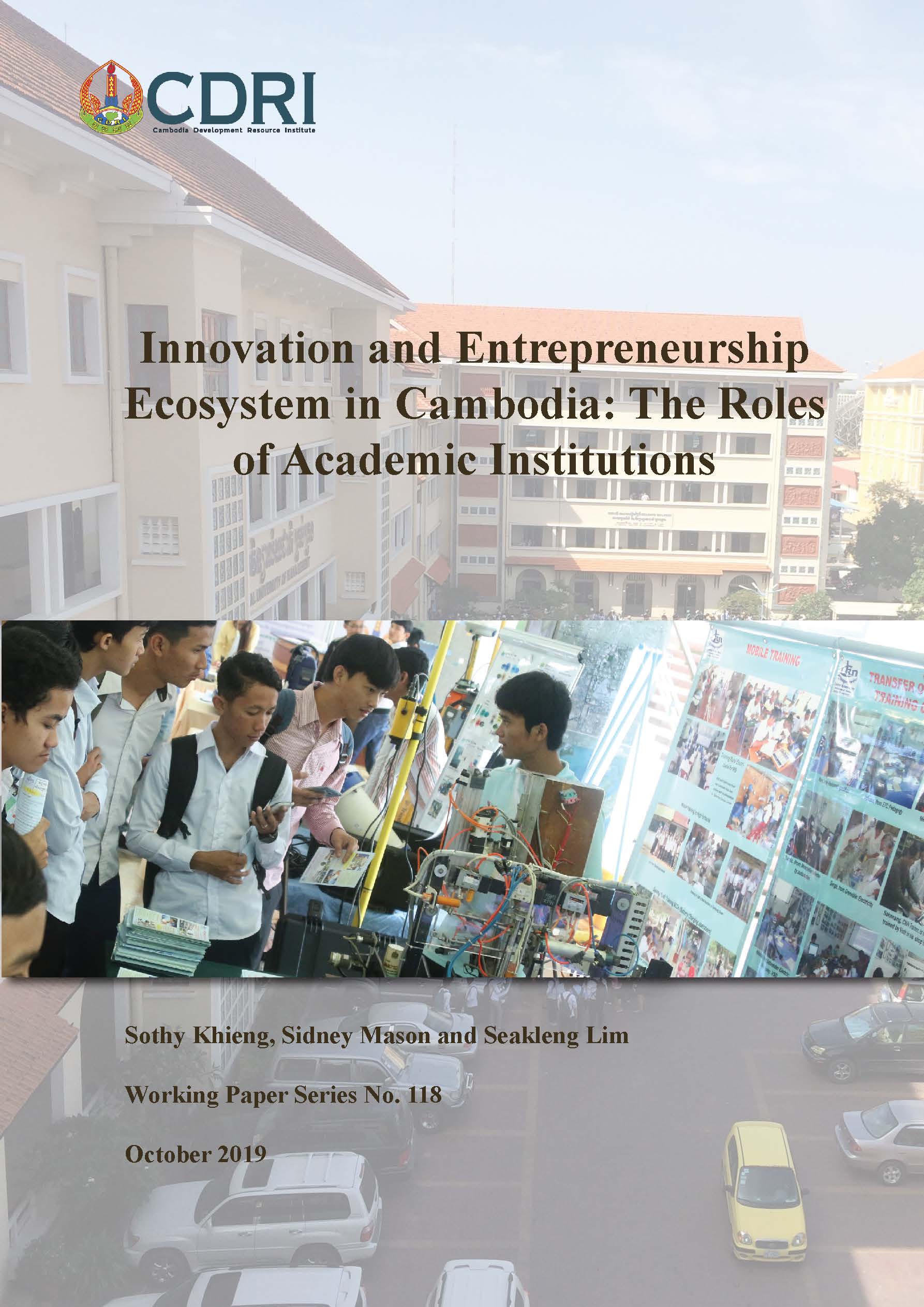
Innovation and Entrepreneurship Ecosystem in Cambodia: The Roles of Academic Institutions
Numerous studies have identified the importance of a healthy entrepreneurial ecosystem in stimulating and sustaining innovation and entrepreneurship. Local entrepreneurial ecosystems are made up of both formal and informal institutions, which include legal, economic, institutional, political, social and cultural factors. As well as providing variou...
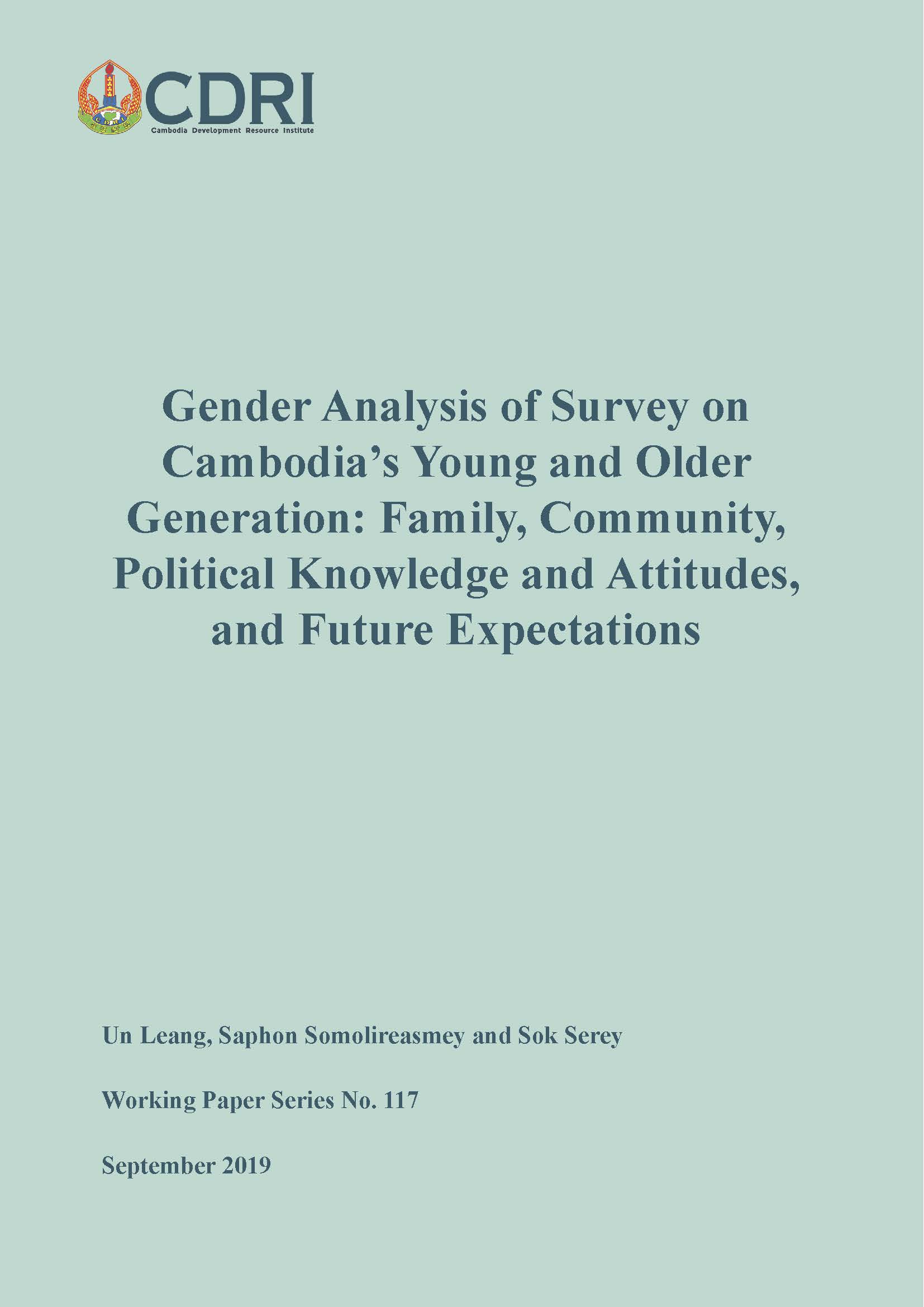
Gender Analysis of Survey on Cambodia’s Young and Older Generation: Family, Community, Political Knowledge and Attitudes, and Future Expectations
Cambodia, following more than two decades of impressive economic performance and development, is fast becoming one of Asia’s new tiger economies. Sustained robust GDP growth of over 7 percent has supported improvements in physical infrastructure (economic and social) and substantial poverty reduction. This economic improvement, mostly made possibl...
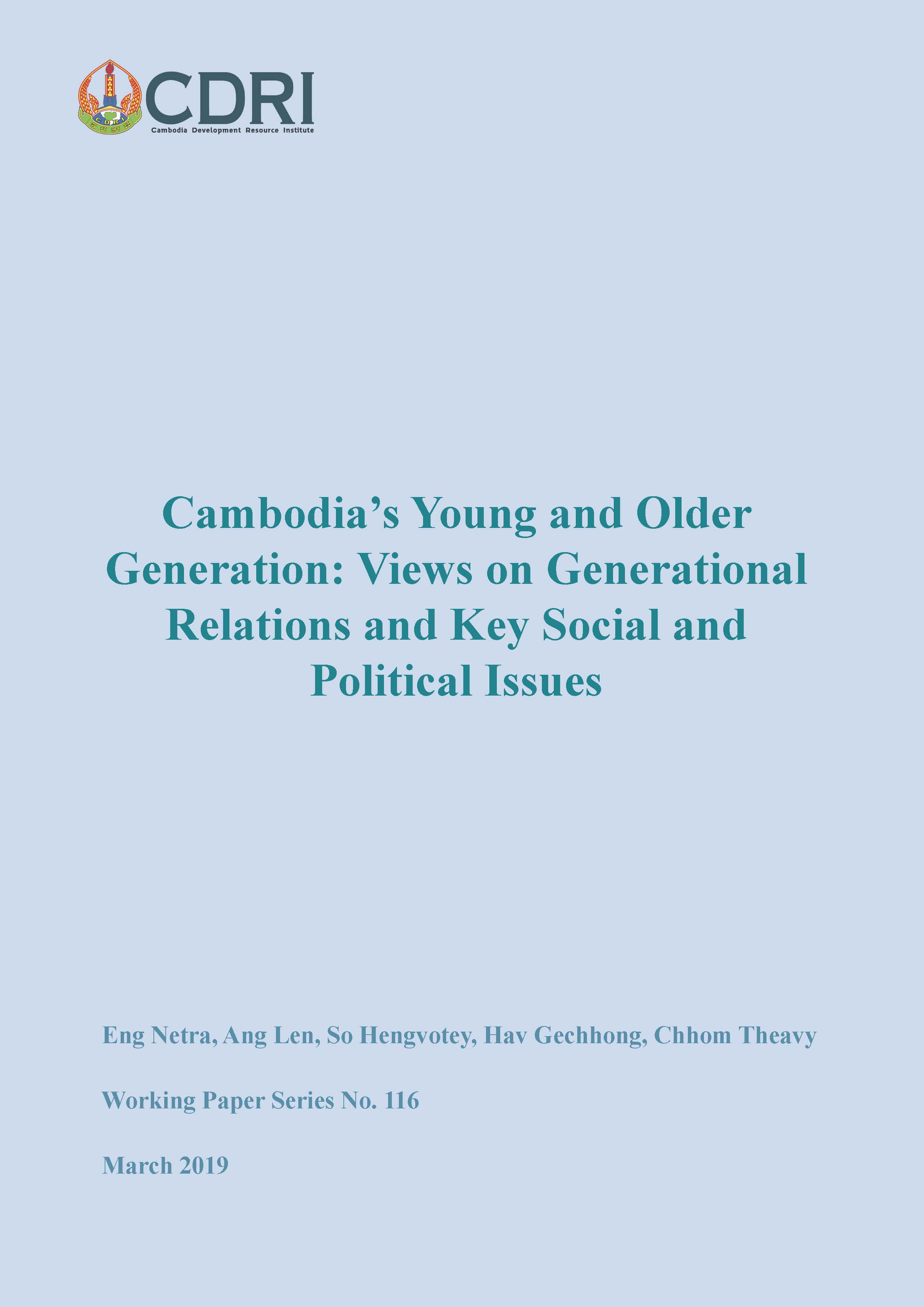
Cambodia’s Young and Older Generation: Views on Generational Relations and Key Social and Political Issues
Youth make up one-third of the Cambodian population. This generation was born after the Khmer Rouge years and has grown up with the idea of regular competitive elections in a multi-party system. The youth cohort forms an increasingly significant proportion of the national electorate. This report analyses the results from a nationally representa...
